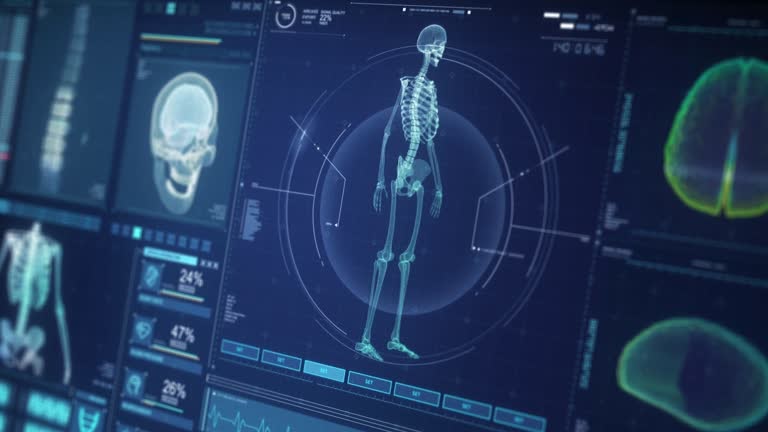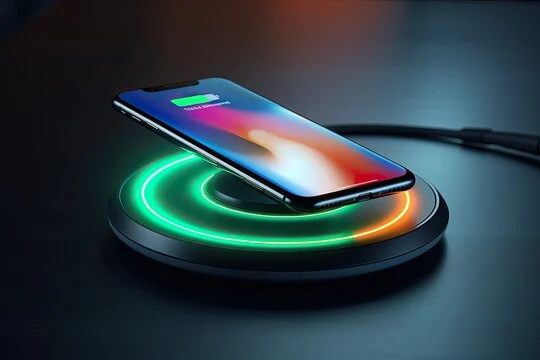The intersection of artificial intelligence (AI) and
nanotechnology is revolutionizing healthcare, particularly in how diagnostics
are performed. With the integration of advanced AI algorithms and nanoscale
innovations, smartphones are poised to become powerful health diagnostic tools,
capable of monitoring and detecting illnesses from the comfort of your home.
Here’s an in-depth exploration of how these technologies are shaping the future
of healthcare.
The Growing Role of AI in Diagnostics
Image credits: |
AI has already proven its potential in improving diagnostic
accuracy across a wide range of medical conditions. For example, advanced
algorithms can analyze images, patterns, and biomarkers far more efficiently
than traditional methods, providing rapid and precise results. Recently, AI
tools such as CHIEF have demonstrated remarkable success in cancer diagnostics,
predicting tumor behavior, and even assessing patient survival rates with
unprecedented accuracy. These advancements highlight how AI-driven diagnostics
can become faster, cheaper, and more accessible
Nanotechnology: A Game-Changer in Biosensing
Nanotechnology, the science of manipulating materials at the
molecular or atomic level, is becoming integral to medical diagnostics.
Nanosensors embedded in devices can detect minute changes in biological
markers, allowing for early detection of diseases such as cancer, diabetes, or
cardiovascular conditions. For instance, smartphone-compatible biosensors have
been developed that can analyze blood, sweat, or saliva, providing near-instant
results for various health parameters
Nanotechnology’s ability to detect biomarkers at extremely
low concentrations opens up possibilities for continuous health monitoring,
making smartphones indispensable tools in personalized healthcare.
Smartphone Integration: Bringing Advanced Diagnostics Home
The convergence of AI and nanotechnology is transforming
smartphones into portable laboratories. Devices are being equipped with
nanosensors and paired with AI-driven apps to interpret data, enabling
functionalities like:
- Blood
Glucose Monitoring: Advanced nanotechnology can measure glucose levels
from sweat or saliva samples analyzed via a smartphone app. - Cancer
Biomarker Detection: Using nanosensors and AI, smartphones can identify
cancer-related proteins or DNA mutations early. - Respiratory
Health Monitoring: AI algorithms combined with nanosensors can assess lung
function and detect early signs of respiratory illnesses
Applications of AI-Enabled Smartphones in Healthcare
1. Early Disease Detection
AI models can detect subtle patterns in biosensor data that
may indicate early disease stages. For example, advanced machine learning
models have been developed to detect Alzheimer’s through blood-based
biomarkers, offering a non-invasive alternative to traditional diagnostics
2. Chronic Disease Management
Patients with chronic conditions like diabetes or
hypertension can benefit significantly from smartphone-based monitoring.
Continuous glucose monitoring systems integrated with AI can predict
fluctuations and alert users before critical levels are reached.
3. Infectious Disease Diagnostics
Smartphones equipped with nanosensors have shown potential
in identifying viral and bacterial infections, including COVID-19. These tools
analyze samples like saliva or nasal swabs, delivering accurate results in
minutes
Challenges and Considerations
1. Accuracy and Validation
While AI and nanotechnology have shown promise, ensuring the
accuracy of diagnostic tools remains a priority. Clinical trials and regulatory
approvals are necessary for widespread adoption.
2. Data Privacy
The integration of health diagnostics into smartphones
raises concerns about data privacy and security. Developers must ensure that
patient data is protected under stringent guidelines.
3. Accessibility
Although the technology is advancing rapidly, affordability
and accessibility remain barriers. Efforts must be made to make these tools
available to populations in low-resource settings.
Future Prospects
Image credits: |
As these technologies mature, smartphones could become
central to healthcare ecosystems, offering capabilities such as:
- Telehealth
Integration: Diagnostics performed on smartphones can be seamlessly shared
with healthcare providers, enabling remote consultations and treatment
recommendations. - Predictive
Analytics: AI algorithms may predict future health risks based on patterns
in user data, enabling preventive care. - Personalized
Medicine: By analyzing individual genetic and molecular profiles,
smartphone diagnostics can guide personalized treatment plans.
Conclusion
AI and nanotechnology are unlocking the full potential of
smartphones in health diagnostics, bringing high-tech solutions to everyday
users. From early detection of chronic diseases to managing infectious
outbreaks, these innovations promise to revolutionize how we approach
healthcare. While challenges remain, the future of home-based diagnostics is
bright, with smartphones poised to become essential tools in global health.
For more details on these advancements, refer to sources
such as the World Economic
Forum and Diagnostics
World News.







